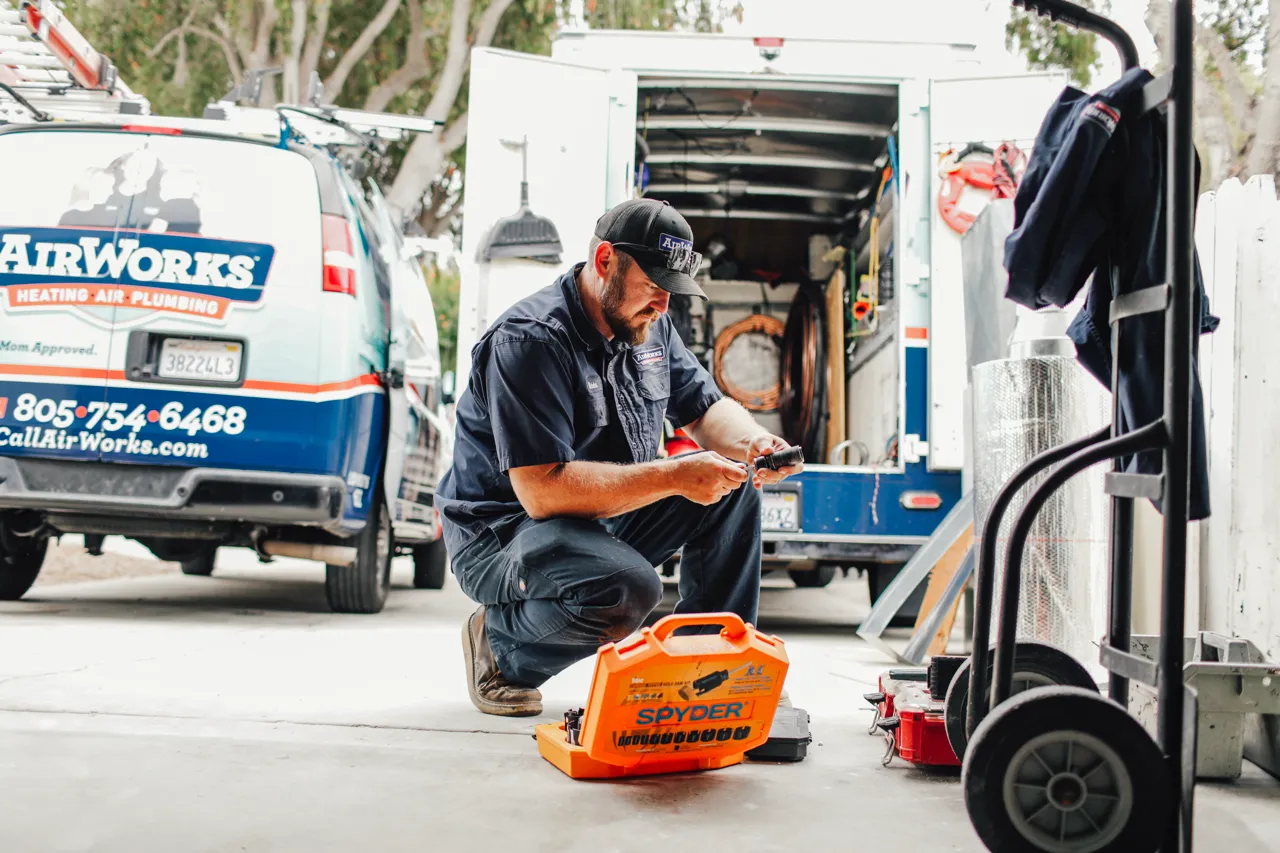Overflow pipe leaking: 1 Easy Fix
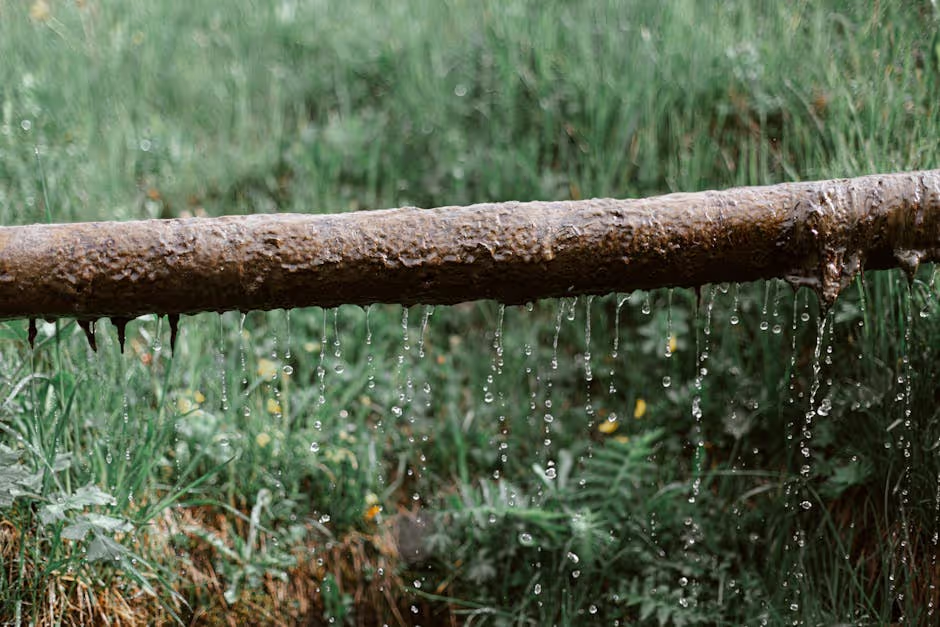
When Your Home's Safety Feature Becomes a Problem
Overflow pipe leaking is your home's way of telling you something's wrong with your plumbing system. Here's what you need to know right away:
Quick Fix Guide:
- Find the source - Check toilet cisterns, water tanks, or boiler areas
- Turn off water supply - Use the isolation valve or main stopcock
- Check the float valve - Most leaks come from stuck or damaged float mechanisms
- Replace worn washers - Simple fix for many toilet overflow leaks
- Call a professional - For boiler leaks or if hot water is coming out
An overflow pipe isn't just a random tube sticking out of your house. It's actually a safety feature designed to prevent flooding inside your home. When water levels get too high in tanks, toilets, or boilers, the overflow pipe directs that excess water outside instead of onto your floors.
But when that pipe starts dripping constantly, it means something in your system isn't working right. Maybe it's a stuck float valve in your toilet, worn-out washers, or high water pressure pushing against seals.
The good news? Most overflow pipe leaks have simple causes. A toilet that runs constantly can waste thousands of gallons per month and add hundreds of dollars to your water bill. That's money literally going down the drain.
The concerning news? If hot water is coming from your overflow pipe, that's a serious safety issue that needs immediate professional attention.
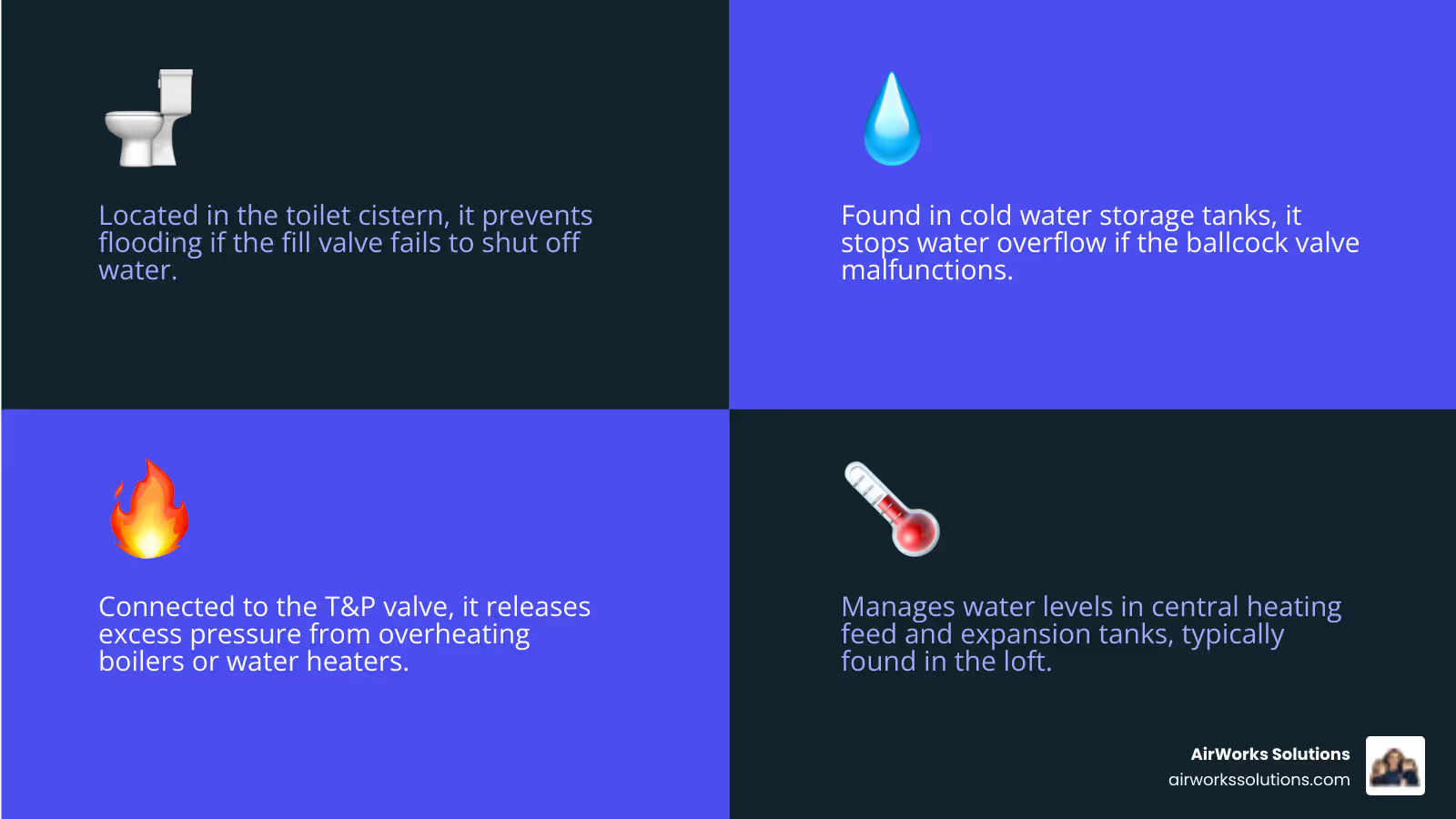
What is an Overflow Pipe and Why is it Leaking?
Think of your overflow pipe as your home's warning pipe – it's your plumbing system's way of saying "Hey, something's not right here!" This simple-looking pipe on your exterior wall is a clever safety feature designed to prevent water from flooding the inside of your home. When everything's working properly, you shouldn't see any water coming from this pipe. But when something goes wrong with your toilet cistern, cold water storage tank, or boiler, the overflow pipe directs excess water outside instead of onto your floors.
The most obvious sign of a leak is water coming from that exterior pipe, from a steady drip to a continuous stream. Other clues include water stains running down your exterior walls, damp patches on the ground below the pipe, or a toilet that never stops running. An overflow pipe leaking is a symptom, and the common causes are usually one of a few culprits.

The biggest troublemaker is usually a faulty float valve. Inside your toilet cistern or water tank, a float rises with the water level to shut off the supply. When this system fails—perhaps the float is stuck, the float ball is punctured, or the mechanism is worn out—water keeps flowing out the overflow pipe.
High water pressure is another common villain. Excessive pressure can force water past seals and valves that would normally hold tight. Similarly, small but mighty worn-out washers can cause leaks. Over time, these rubber rings crack or become brittle, losing their watertight seal.
For homes with boilers, boiler pressure issues and a failing Temperature & Pressure (T&P) valve are serious concerns. The T&P valve is a critical safety device that releases water when things get too hot or pressurized. If it's leaking, it signals a potentially dangerous situation.
Ignoring these leaks can lead to real problems. We're talking about property damage from water seeping into walls and foundations, mold growth in damp areas, and high water bills. A constantly running toilet can waste thousands of gallons per month, turning into hundreds of dollars on your utility bill. Most importantly, a leak from a boiler's overflow, especially with hot water, is a genuine safety hazard that requires immediate professional attention.
How to Fix a Leaking Overflow Pipe: A Step-by-Step Guide
When you're ready to tackle that overflow pipe leaking, safety comes first. Before you touch anything, turn off the water supply to the problem area. If you're not sure which valve to use, shut off the main water supply to your house. When dealing with boilers or hot water systems, also turn off the power or gas supply. Your first step is to figure out which tank or system is feeding the leaky pipe. Is the water cold or hot? That's your first big clue.

What to do about an overflow pipe leaking from a toilet
Toilet overflow leaks are the most common and usually the easiest to fix. The problem almost always lives inside the toilet tank.
Start by lifting off the tank lid. You'll see the fill valve mechanism with a float – either a ball on an arm or a newer cylinder. This float rises with the water level and shuts off the flow when the tank is full. Sometimes the fix is simple: the flush chain might be tangled, or the float arm could be bent. Gently untangle any chains or carefully bend the float arm down to lower the water level, which should sit about an inch below the top of the overflow pipe inside the tank.
If the float moves correctly but water keeps trickling into the overflow, you're likely looking at a worn-out washer inside the fill valve. Turn off the water supply to the toilet (using the small valve on the wall behind it), flush to empty the tank, then take apart the fill valve to get to the washer. Bring the old washer to your hardware store to find an exact match. If the whole float valve mechanism is damaged, replacing it is still a DIY-friendly job.
For more comprehensive bathroom plumbing solutions, check out our Bathroom Plumbing services.
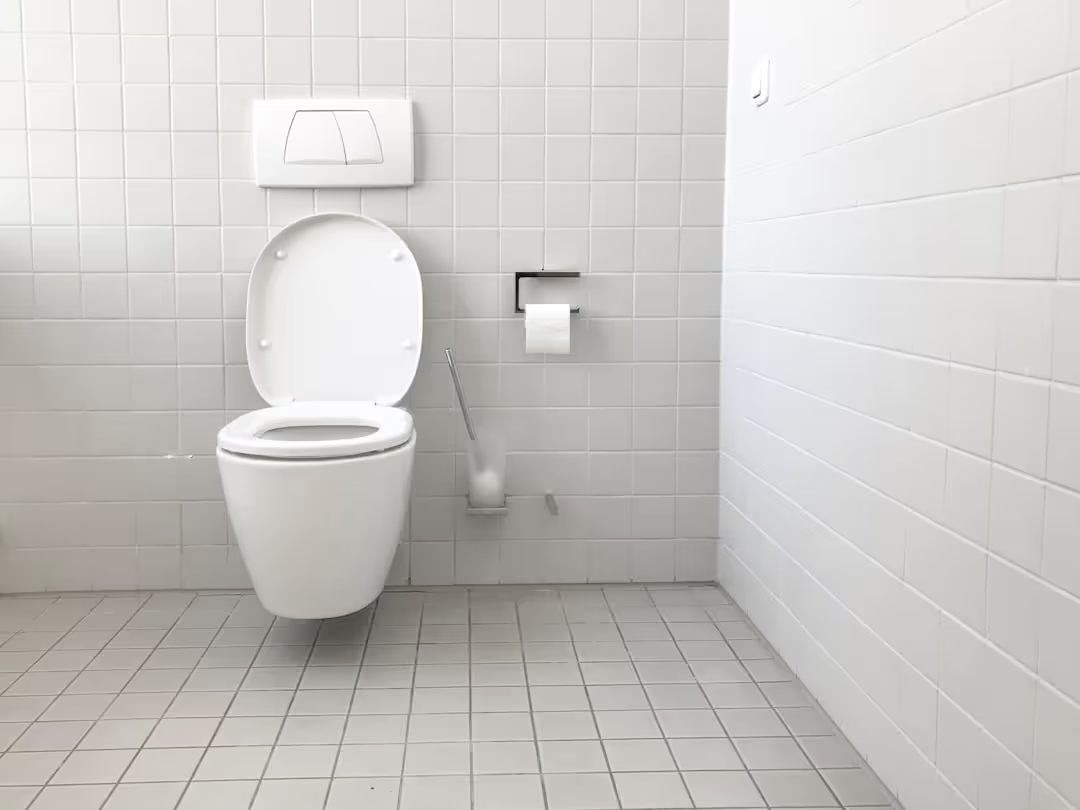
What to do about an overflow pipe leaking from a water heater or boiler
Here's where things get serious. When hot water is coming from an overflow pipe leaking, you're dealing with a safety issue that needs immediate professional attention. This is not a DIY job.
Water heaters have a Temperature and Pressure (T&P) relief valve. When pressure or temperature gets too high inside the tank, this valve opens to release water. If it's constantly dripping, either the valve itself is faulty or something is causing dangerous conditions in your water heater. This could be high water pressure, a broken expansion tank, or a thermostat set too high (we recommend keeping it around 120°F).
If hot water is coming from your overflow pipe, turn off the power or gas to your water heater immediately, then shut off its water supply. The safety risks make this a job for professionals.
Boilers are even more serious. They deal with higher pressures, and when their pressure relief valve leaks, it usually means the system pressure is too high. Never try to fix a boiler overflow leak yourself. Turn off your heating system and the boiler's water supply, then call a Gas Safe registered engineer right away. In our Sacramento and Ventura County service areas, AirWorks Heating Air Plumbing can handle these repairs safely.
Our team has the expertise and certifications to safely diagnose and repair water heater issues. Learn more about our Water Heater Repair services.
How to Address Leaks from Water Tanks and Sinks
Cold water storage tanks, usually in your attic, work on the same principle as toilet tanks. They use a ballcock valve with a float to control water levels. When something goes wrong—a stuck valve or a punctured float—the tank overfills. Accessing the tank is necessary to fix these problems. Check that the ballcock valve moves freely. If a ball float sits low in the water, it probably has a hole and needs replacing. You can also try gently bending the brass arm of the float mechanism downward to lower the water level.
Sink overflows are different. Every sink has a small opening near the top to prevent flooding. When this internal overflow seems to be leaking, it's usually because the main drain is clogged and water is backing up. Start by clearing any visible debris from the overflow opening. For stubborn clogs, try a drain snake or plunger. If you notice water leaking from pipe connections under the sink, you might have loose fittings or worn washers that need tightening.
Kitchen plumbing problems can disrupt your whole routine. For expert help with sink overflows and water pressure issues, explore our Kitchen Plumbing services.
When to Call a Professional and How to Prevent Future Leaks
While we encourage homeowners to tackle basic plumbing, there are times when it's wise to put down the wrench and call a professional. Some overflow pipe leaking problems aren't straightforward and can escalate if handled incorrectly.
When to Call a Professional Plumber
It's time to call a professional plumber when:
- Hot water is coming from any overflow pipe. This is your biggest red flag and a safety emergency. Shut off the appliance and call for help immediately.
- You have any leak from a boiler. Boilers involve gas, water, and high pressure. Always leave these repairs to a certified technician for safety.
- DIY fixes don't work. If you've tried adjusting the float or replacing a washer and the leak persists, there's likely a deeper issue that needs a trained eye.
- You can't find the source of the leak. A professional can trace the problem quickly, saving you from unnecessary detective work and potential damage.
- You see signs of hidden leaks, like water stains on walls or ceilings. These require professional intervention to prevent major structural damage and mold.
- You suspect high water pressure. A plumber can test your home's pressure and install a regulator to protect all your fixtures from premature wear.
At AirWorks Heating Air Plumbing, we've been helping homeowners across Sacramento and Ventura Counties since 2010. We believe in honest service, which means telling you when a problem is a simple fix and when it's time for a professional.
Preventing Future Leaks
The best way to handle a leak is to prevent it. A little preventive care goes a long way.
- Regular Visual Inspections: Every few months, look at your toilet cisterns, water tanks, and around your water heater for dampness or corrosion.
- Annual Boiler Service: This is non-negotiable for safety and efficiency. An engineer will check the pressure relief valve and other key components.
- Know Your Water Heater's Age: Most last 8-15 years. If yours is getting old, be vigilant for trouble signs and have the T&P valve tested periodically.
- Check Water Pressure: High pressure wears out plumbing components faster. Have it checked if you're concerned.
- Don't Ignore Small Drips: A toilet that runs for an extra few seconds or a tiny drip are early warnings. Addressing them promptly prevents bigger problems.
For comprehensive and reliable solutions to all your plumbing needs, from preventative maintenance to emergency repairs, we're here to help. Visit our More info about our Contact Us page to get in touch with our experienced team.
Frequently Asked Questions about Overflow Pipe Leaks
Let's tackle some of the most common questions we hear from homeowners dealing with overflow pipe leaking issues. These answers should help you understand what's urgent, what's dangerous, and what's just plain wasteful.
Is a leaking overflow pipe an emergency?
The short answer? It depends on what's coming out of the pipe.
- A steady drip is urgent and needs attention soon, but you don't need to call an emergency plumber at 2 AM. This type of leak will waste water and potentially cause damage over time, but you can safely wait until business hours to call a professional.
- Gushing water is a real emergency. Something has gone seriously wrong. Turn off the water supply to the appliance immediately, or shut off your home's main stopcock right away.
- Hot water leaking from any overflow pipe is always an emergency. This signals a dangerous malfunction in your water heater or boiler. The moment you feel hot water, turn off the appliance's power or gas supply and its water supply immediately, then call a professional.
Why is hot water coming out of my overflow pipe?
When hot water flows from your overflow pipe, your home is signaling a serious problem with your water heating system. This is never normal and always requires immediate attention. For water heaters, it usually means your Temperature and Pressure (T&P) relief valve is activating due to dangerously high pressure or temperature inside the tank. For boiler systems, it typically points to high system pressure. Immediately shut off the power or gas to your water heater or boiler, turn off its water supply, and call a qualified professional. Don't try to fix this yourself—the risks aren't worth it.
How much water does a constantly running toilet waste?
Prepare to be shocked. A toilet with a constantly running overflow pipe leaking can waste a staggering amount of water—we're talking thousands of gallons per month. That innocent little trickle can add hundreds of dollars to your monthly water bill. It's not just about your wallet; it's also a massive environmental waste. The good news is that fixing a running toilet is often a quick and inexpensive repair, and the cost is usually a fraction of what you'll save on your next water bill.
Your Next Steps for a Leak-Free Home
Nobody wants to find an overflow pipe leaking outside their home, but now you're armed with the knowledge to tackle it head-on. Think of this guide as your roadmap back to a leak-free, worry-free home.
We've covered the main culprits behind those pesky drips - from faulty float valves in toilet cisterns to worn washers that have seen better days. Sometimes it's as simple as adjusting a float arm or replacing a small rubber washer. Other times, especially when hot water is involved, it signals something more serious that needs immediate professional attention.
The most important thing to remember? Don't wait. That innocent-looking drip might seem harmless, but it's literally money flowing down the drain. A constantly running toilet can waste thousands of gallons monthly and add hundreds of dollars to your water bill. Beyond the financial hit, persistent moisture creates the perfect breeding ground for mold and can cause serious structural damage to your home.
Simple DIY fixes work great for basic issues like stuck toilet floats or clogged sink drains. But when you're dealing with boiler leaks, mysterious hot water coming from overflow pipes, or leaks you can't locate, that's when it's time to call in the professionals. Your safety and your home's integrity are worth more than the cost of a service call.
At AirWorks Heating Air Plumbing, we've been helping homeowners across Sacramento, Ventura, and surrounding areas solve their plumbing puzzles since 2010. We believe in honest diagnosis, fair solutions, and treating your home like it's our own. Whether it's a midnight emergency or routine maintenance, our experienced team knows how to get your plumbing back on track.
Ready to say goodbye to that annoying overflow pipe leaking? For comprehensive and reliable solutions to all your plumbing needs, explore our expert Plumbing Services. Let's work together to keep your home dry, safe, and running smoothly.

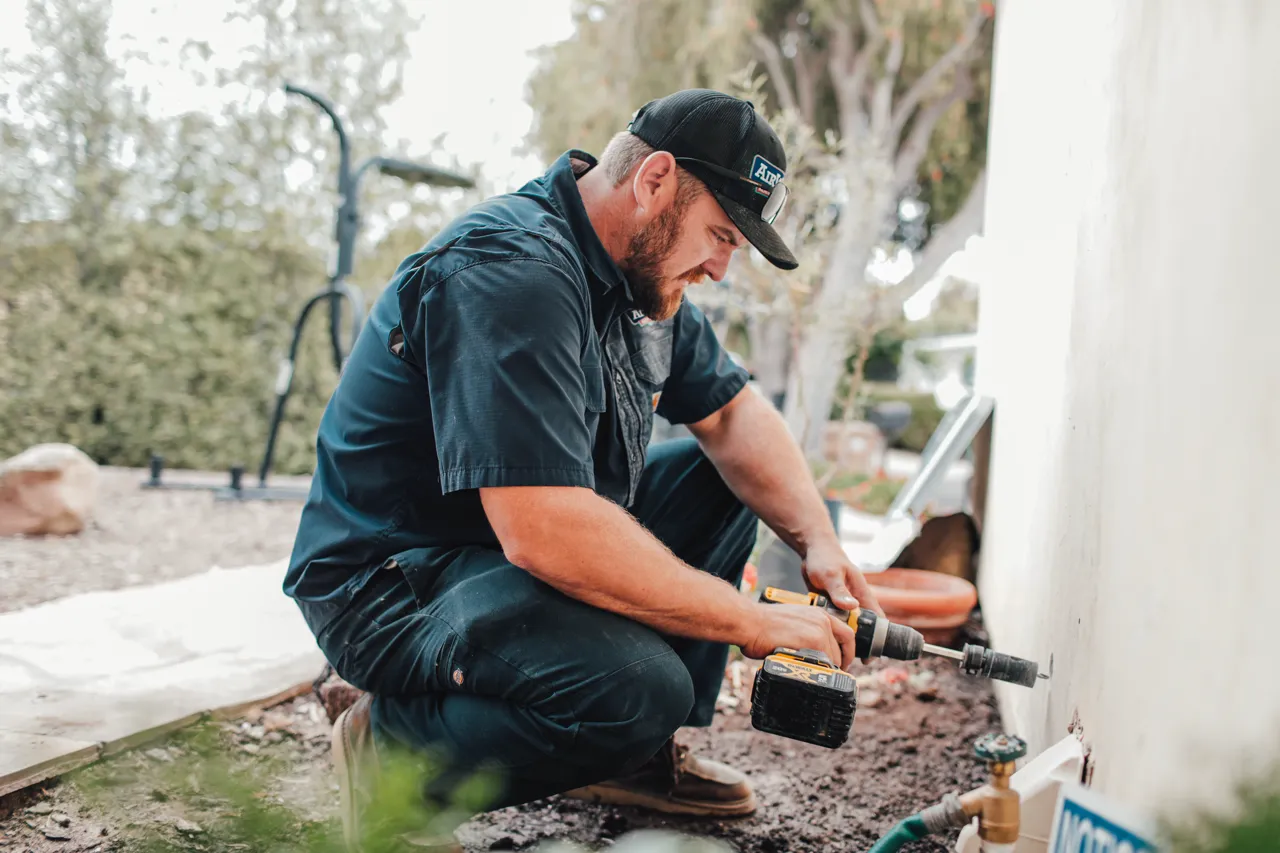
.webp)
